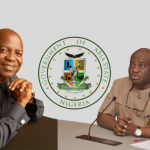

The Nigerian Midstream and Downstream Petroleum Regulatory Authority (NMDPRA), saddled with the responsibilities of providing a regulatory and fiscal framework for the Nigerian Petroleum Industry, in what appears a practice that facilitates procurement abuse has refused to respond to the Freedom of Information Act.
Divine Era Development and Social Rights Initiative (DEDASRI) and her partner Media Advocacy West Africa (MAWA-Foundation) in the #DiscloseTheDeal project through the FOI, asked NMDPRA to provide information regarding its approval to Novertek Energy Limited for the construction of a 500MT Liquefied Petroleum Gas (LPG) facility in the Federal Capital Territory (FCT-Abuja), Nigeria’s capital city and the provision of compressed natural gas (CNG) agreement with Femadec Energy Limited in 2023.
A request NMDPRA has since refused to comply with four months after it was made. This is even as the FOI Act mandates the agency to respond within seven days. This act frustrates transparency and accountability in Nigeria’s oil sector further making efforts to achieve disclosure difficult.
This is even as the FOI mandates that the government and its agencies make information public for citizens to access freely. Worse still, Nigeria is a signatory to the Extractive Industry Transparency Initiative (EITI) and has established the Nigeria Extractive Industries Transparency Initiative backed with legislation (NEITI Act 2007), to ensure transparency in the extractive sector.
Our officials could not trace locations where contracts awarded by NMDPRA were implemented, an indication that suggests that they were not carried out. A search at the Corporate Affairs Commission reveals that Novertek Energy Limited is not found on its record, an indication that NMDPRA may have awarded the contract to a fake company in total disregard to procurement laws.
The Nigerian government claims to have spent a whooping N100 billion on CNG-powered vehicles. An intervention it claimed is to address the challenges of petrol subsidy removal by the Federal Government.
Nigerian experiences have shown that government agencies in the extractive frustrate interventions targeted at addressing corruption in the sector. Hence, stakeholders working in the Extractive Sector need to engage in a strategic participatory process to facilitate transparency in the sector.
This report was supported by a grant from Publish What You Pay
Enwelum Ogechukwu U.
Executive Director, Divine Era Development and Social Rights Initiative (DEDASRI)
Member, Publish What You Pay, Nigeria
Read More: Cybersecurity Levy: Government more interested in milking a dying economy – Peter Obi
About The Author
Related Articles
Tinubu Government Delays Release of Signed Tax Acts to the Public
Four days after President Bola Tinubu announced the signing of four tax...
ByMayowa DurosinmiJune 30, 2025As Tinubu Urges Africa-Caribbean Unity in Saint Lucia, Over 272 Nigerians Killed in June Alone
While Nigerians deal with deadly violence, worsening hunger, and mass flooding, President...
ByWest Africa WeeklyJune 30, 2025You Can’t Tax a Dead Economy: Nigeria Is Suffocating Under Its Own Policies
As Nigeria’s Central Bank clings to its benchmark interest rate of 27.5...
ByWest Africa WeeklyJune 30, 2025“Wike is Not a Blessing to Us, He’s a Disaster” — Workers Protest in Nigeria’s Capital Over Unpaid Wages, Poor Working Conditions
Staff members of the Federal Capital Territory Administration (FCTA) in Abuja barricaded...
ByOluwasegun SanusiJune 30, 2025











